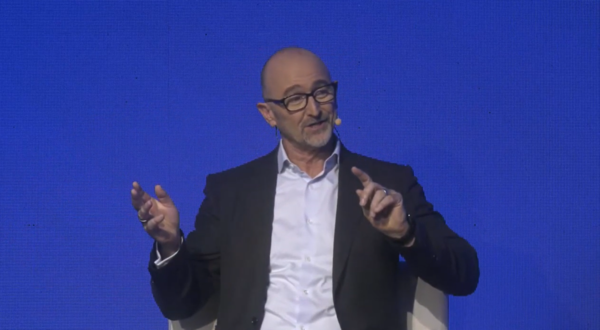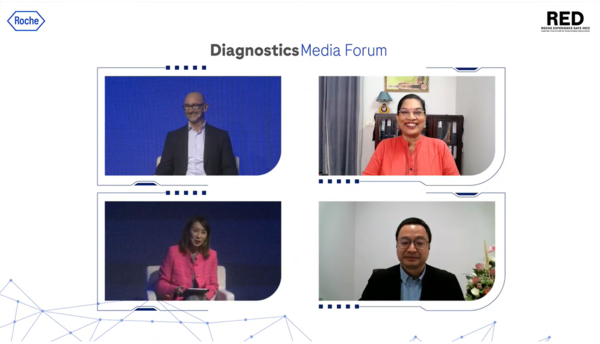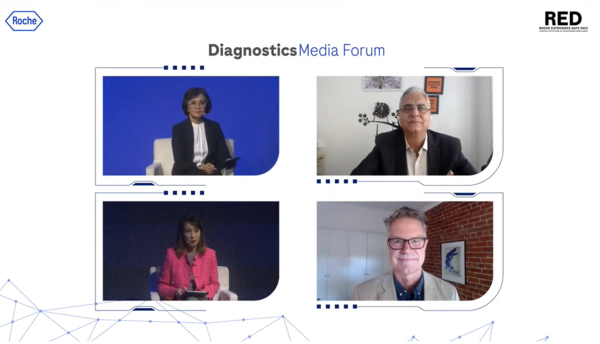Lance Little, head of Roche Diagnostics Asia Pacific, said the diagnostics industry should put priority on providing patient-centric services at an online conference on Tuesday.
The company hosted the conference under the theme, “Partnering patients to revolutionize care in the Asia Pacific” involving two sessions focused on patients and labs of the future.

The first session included Little, Dr. D S Ratna Devi, CEO and co-founder of DakshamA Health, and Dr. Suvanich Triamchanchoochai, a cardiologist at Ramathibodi and Nakornthon Hospital.
The panelists began by highlighting the unique barriers to effective patient engagement in the APAC region including its social and cultural diversity, differences in disease and geography, literacy levels, mistrust in the system, and failure to take preventative methods in healthcare.
Accordingly, Little commented, “By focusing on the demand from patients, supply from the doctors should be provided considering access, trust in the healthcare system and cultural dynamics.”

Dr. Devi noted that women’s healthcare issues are often downplayed and treated with home remedies until it becomes too difficult to manage.
In this regard, Devi emphasized the importance of patient groups to increase health awareness and patients' voices.
"Patient groups play a big role in helping individuals manage common diseases like hypertension to prevent more serious issues like strokes and these groups can also help develop disease registries to better understand diseases burden so that countries know exactly which diseases to prioritize, " she went on to say.
Dr. Triamchanchoochai echoed similar sentiments.
In Thailand, cancer, diabetes and coronary issues are prioritized so healthcare resources are allocated to serve the widest population possible, he said.
Adding to this, Roche APAC head stressed that healthcare needs to be an ongoing narrative where all stakeholders like researchers, physicians, and healthcare start-ups articulate their expertise in managing diseases to the general public in a way in which they can connect and understand.
On a similar note, Devi emphasized that patients should also be equal partners in making healthcare decisions which should be addressed in medical school curriculums. She also added that electronic medical records (EMRs) should be used to connect the siloed medical specialties to avoid confusing patients.
Meanwhile, Little noted that Roche as a leading diagnostics solution provider needs to reinforce a more patient-centric approach through dialogues like this seminar, but also directly with technological innovations, highlighting Roche’s human papillomavirus (HPV) point-of-care (POC) diagnostic.
“Women can now self-sample to screen themselves for cervical cancer which is one of the most manageable cancers and it is being rolled out in Australia and Malaysia for those who don’t have access to labs and digital tools," said Little.

In the later panel discussion, the speakers highlighted that labs should aim to become as decentralized as possible to deliver healthcare to patients' doorsteps and it was important to not completely take physicians out of the equation.
This panel featured President Director of PT Prodia Widyahusada Tbk Dr. Dewi Muliaty, Chief Strategy and Regions Officer for Grampians Health Dr. Robert Grenfell, and Regional Director of the International Union Against Tuberculosis and Lung Disease Dr. Kuldeep Singh Sachdeva.
Grenfell remarked, “POC data should still filter back into hospital labs so that doctors can intervene if needed.”
Meanwhile, Dr. Muliaty and Sachdeva both agreed that conventional labs will not disappear in the future despite the success of POCs but will instead become more innovative by applying big data in molecular diagnostics to deliver more personalized treatments through genetic sequencing and susceptibility testing.

